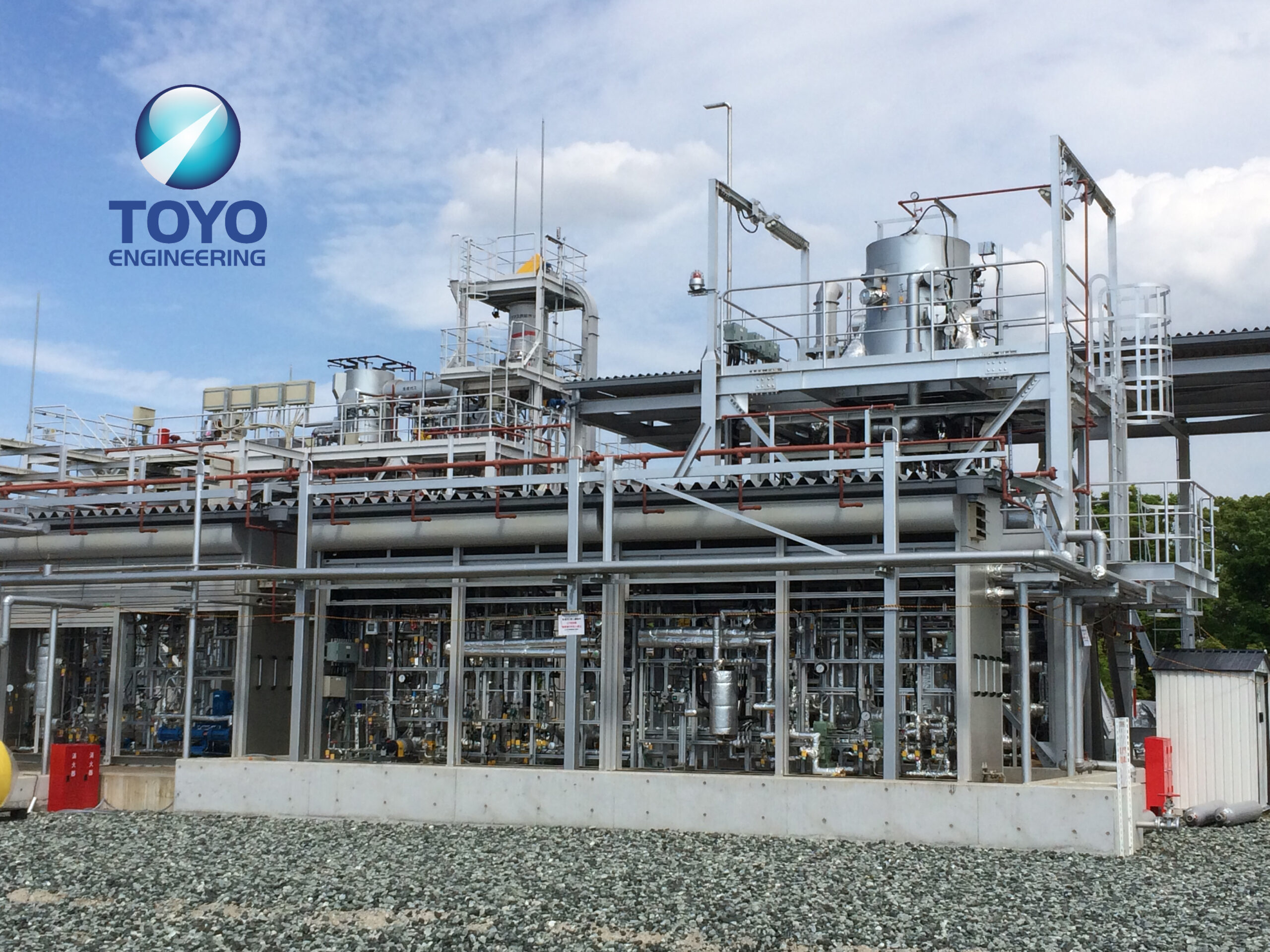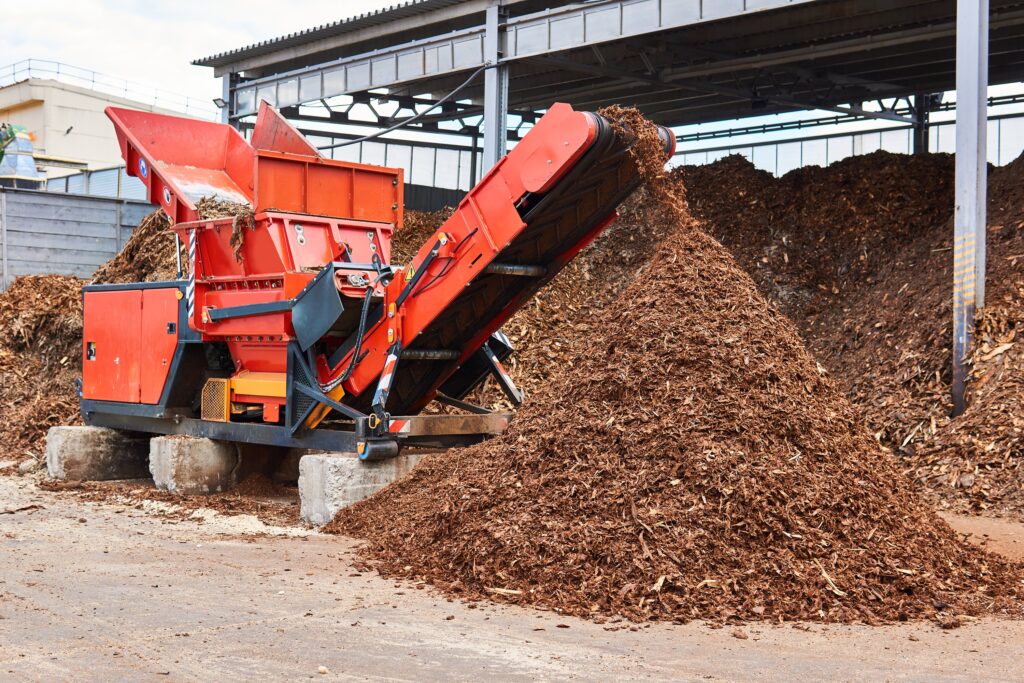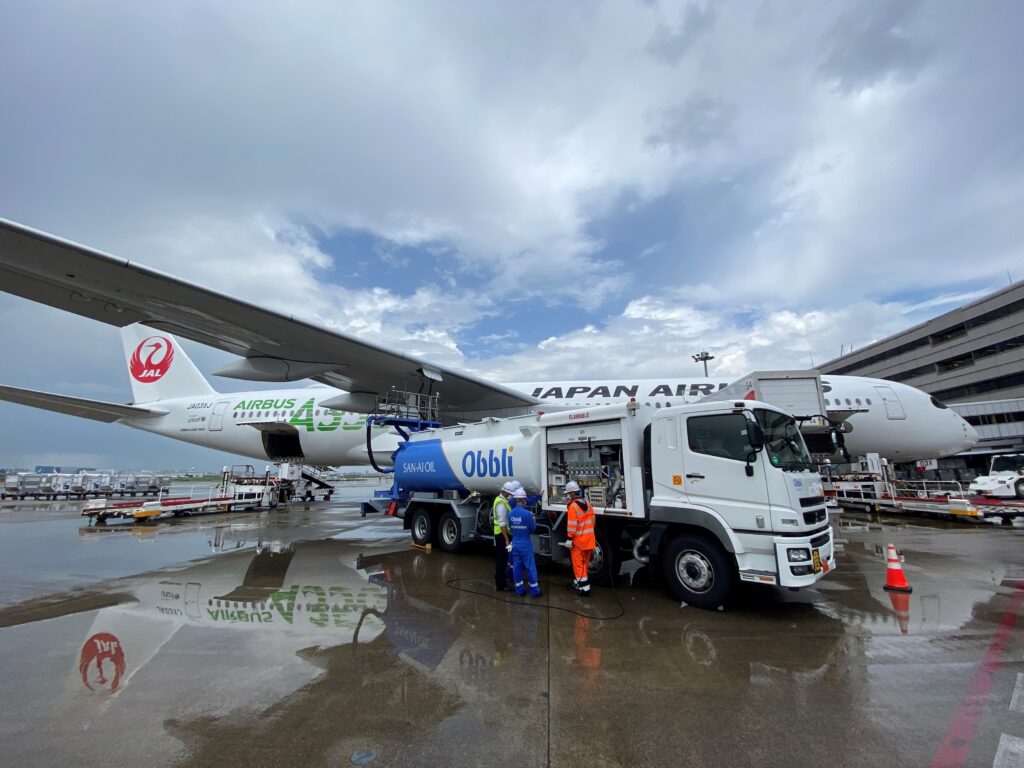Velocys partnered with Toyo Engineering Corporation (TOYO) to demonstrate the complete production of sustainable aviation fuel (SAF) from woody biomass. The biomass-to-SAF plant delivered a flight-ready SAF pathway and proved that modular Fischer-Tropsch technology (FT reactor) can transform regional biomass into certified jet fuel.
This integrated biomass-to-SAF demonstration plant is a major step toward commercial-scale waste-to-SAF deployment in Japan and beyond.

Woody biomass-to-SAF plant in Nagoya, Japan. Image courtesy of TOYO.
To support Japan’s aviation decarbonization goals and accelerate domestic SAF production, TOYO led a national consortium—including Mitsubishi Heavy Industries, JERA, and JAXA—with support from NEDO (New Energy and Industrial Technology Development Organization). The team set out to:
TOYO selected Velocys to supply its advanced FT reactor technology, chosen for its compact design, fast integration, and proven performance in varied-scale plants.
At the biomass-to-SAF plant in Japan, wood chips were gasified into syngas, which was purified and compressed before entering Velocys’ microchannel FT reactor. The microchannel reactor, powered by Oxford-engineered high-activity catalysts and precision heat control, synthesized the prized C5+ hydrocarbons. These were then distilled into neat SAF for certification and commercial flight testing.

The demonstration proved that TOYO’s advanced gasification technology and Velocys’ licensable FT technology can deliver consistent, high-quality SAF output using regional biomass feedstocks.
Key achievements

Fuelling a Japan Airlines flight with SAF at Tokyo Haneda Airport. Photo courtesy of NEDO.
| Total runtime | 1,543 hours |
| Uninterupted operation | 30 days |
| Flight-certified SAf produced | 2.366 liters |
| Location | Japan |
| Feedstock | Woody biomass |
| Commercial flight validation | First of its kind in Japan |
Modular FT systems are ready to scale
Compact, low-footprint microchannel FT reactor technology is ideal for remote or decentralized SAF production.
Full-chain integration matters
Seamless coordination between gasification, FT synthesis, and refining is essential for product consistency.
Regulatory success enables commercialization
ASTM certification opened the door to using SAF in regular commercial flights—critical for market acceptance.
Velocys FT technology helped power Japan’s first commercial flight fueled by SAF derived from woody biomass. The project validated every link in the chain—from gasification to ASTM-certified SAF—and showed that modular, small-scale FT systems can play a big role in regional fuel security and global decarbonization.
First-of-its-kind in Japan: This was the country’s first integrated demonstration of SAF from woody biomass, showcasing real fuel in real flight.
Modular SAF production proved viable: The success demonstrated that small-to-medium scale SAF plants can be built near feedstock sources, reducing emissions from transport and enabling local energy independence.
Certified SAF, not just crude: Unlike many pilots that stop at FT crude, this project produced and certified 2,366 liters of ASTM D7566 Annex-1 SAF.
Pathway to commercialization: By proving stable operation and fuel quality, the demo removed a key barrier to future waste-to-SAF and biomass-to-SAF project development.